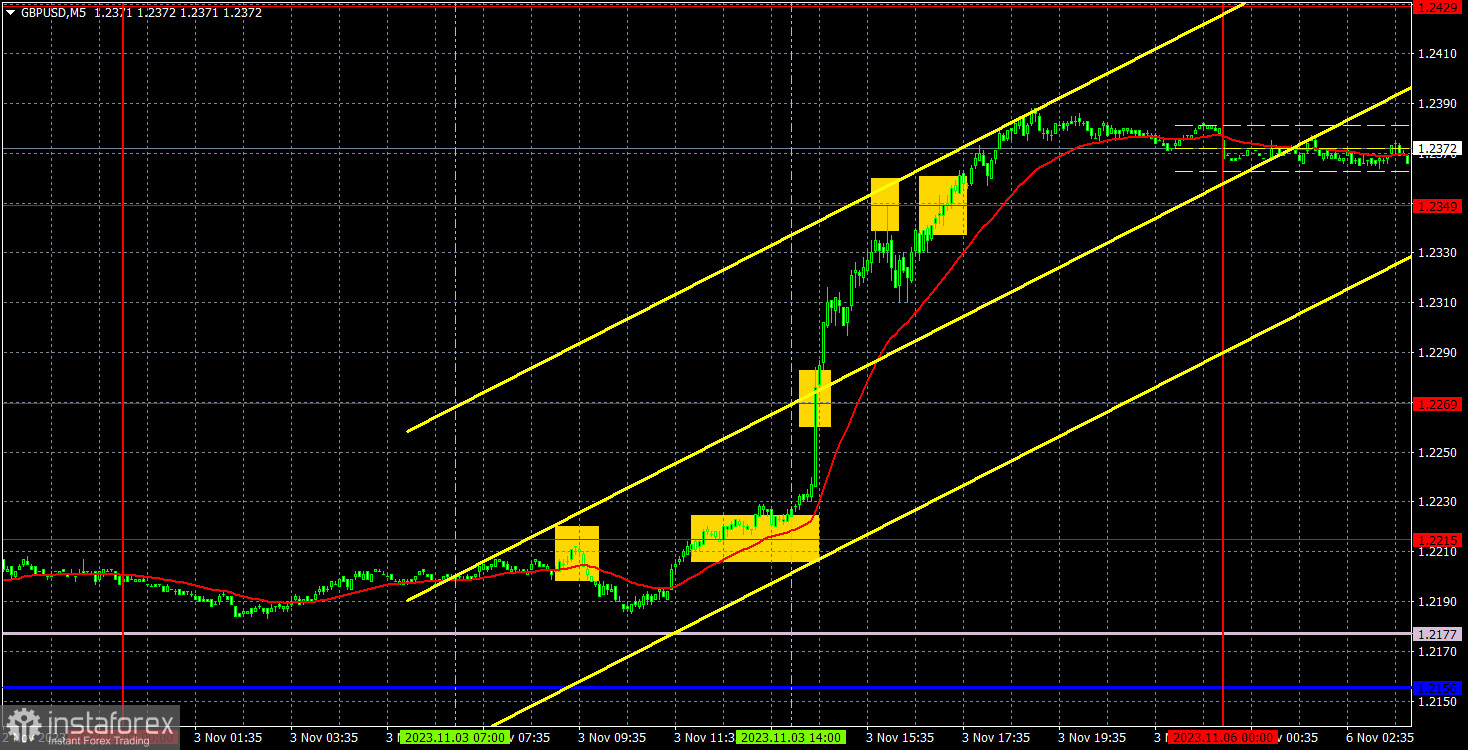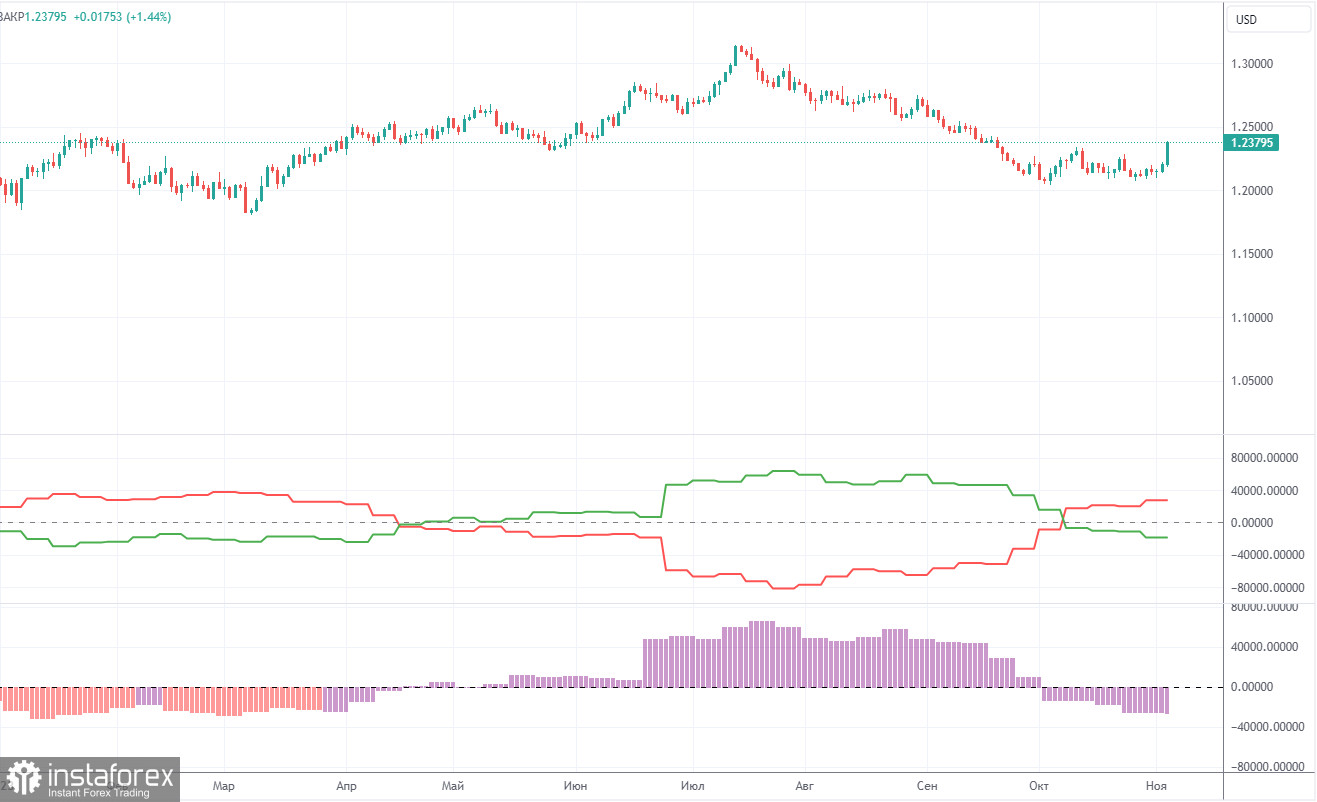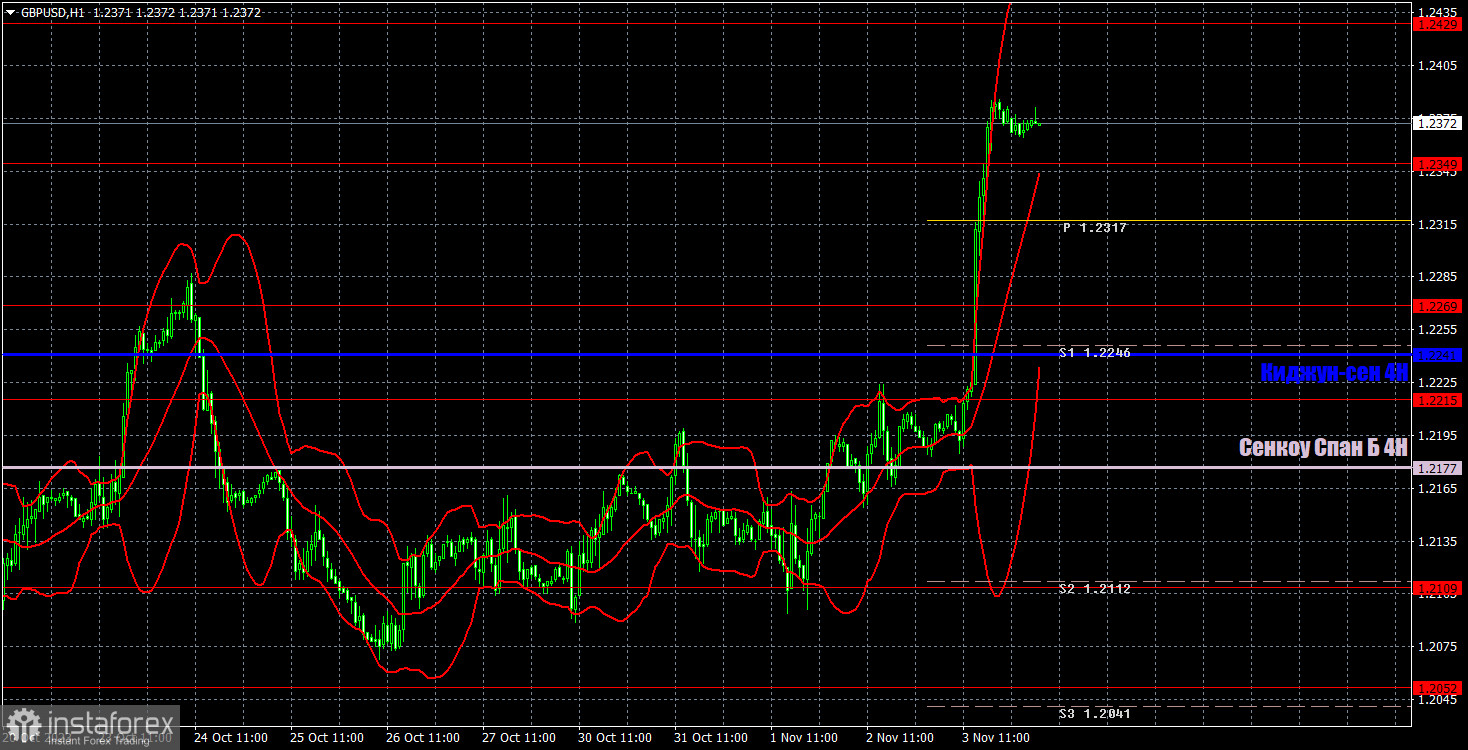Analysis of GBP/USD 5M

GBP/USD moved similarly to EUR/USD throughout Friday. This is not surprising given that both pairs exhibit similar movements. On Friday, the driving factor for the market was the U.S. economic reports, which left little room for an interpretation. All three of the most important reports came in weaker than expected, and in the case of Non-farm Payrolls, the previous month's figure was also revised. Therefore, the conclusion was quite obvious: the U.S. dollar should fall, and it did. We insisted that we were waiting for a more pronounced correction. The recent corrective phases were too weak against the downtrend of 1,100 pips, so we needed to see a more convincing growth. We had to wait for this upward movement for two weeks, and it probably wouldn't have happened without the U.S. reports. But in the end, we finally saw what we were waiting for.
There were several trading signals on Friday. The first sell signal in the form of a bounce from the level of 1.2215 turned out to be a false signal and incurred losses of around 30 pips. However, the next buy signal around the same level proved to be quite profitable, as the price managed to rise to the level of 1.2349, from which it rebounded. Profits from long positions amounted to over 100 pips. It was possible to execute the signal from the pair's bounce from the level of 1.2349 as well, and the pair dropped the necessary 20 pips to set stop-loss to breakeven, but the trade closed right at the stop-loss. The last buy signal should not have been executed, although it was not a losing trade.
COT report:

COT reports on the British pound also align perfectly with what's happening in the market. According to the latest report on GBP/USD, the non-commercial group closed 3,400 long positions and 1,700 short ones. Thus, the net position of non-commercial traders decreased by another 1,700 contracts in a week. The net position indicator has been steadily rising over the past 12 months, but it has been firmly decreasing over the past three months. The British pound is also losing ground. We have been waiting for many months for the sterling to reverse downwards. Perhaps GBP/USD is at the very beginning of a prolonged downtrend. At least in the coming months, we do not see significant prospects for the pound to rise, and even if we're currently witnessing a corrective phase, it could persist for several months.
The British pound has surged by a total of 2,800 pips from its absolute lows reached last year, which is an enormous increase. Without a strong downward correction, a further upward trend would be entirely illogical (if it is even planned). We don't rule out an extension of an uptrend. We simply believe that a substantial correction is needed first, and then we should assess the factors supporting the US dollar and the British pound. A correction to the level of 1.1844 would be enough to establish a fair balance between the two currencies. The non-commercial group currently holds a total of 63,700 longs and 85,800 shorts. The bears have been holding the upper hand in recent months, and we believe this trend will continue in the near future.
Analysis of GBP/USD 1H

On the 1H chart, GBP/USD has finally formed an upward movement, which could serve as a convincing conclusion to the entire bullish correction that has been ongoing for a month. At the moment, the pair is not in a hurry to fall, but it's important to remember that the pair's growth on Friday was mainly due to strong macroeconomic factors. Prior to that, for the past month, it was mostly trading sideways. Therefore, the market sentiment right now is unlikely to be bullish.
As of November 6, we highlight the following important levels: 1.1760, 1.1874, 1.1927-1.1965, 1.2052, 1.2109, 1.2215, 1.2269, 1.2349, 1.2429-1.2445, 1.2520, 1.2605-1.2620, 1.2693. The Senkou Span B (1.2177) and Kijun-sen (1.2241) lines can also be sources of signals. Signals can be "bounces" and "breakouts" of these levels and lines. It is recommended to set the Stop Loss level to break-even when the price moves in the right direction by 20 pips. The Ichimoku indicator lines can move during the day, which should be taken into account when determining trading signals. The illustration also includes support and resistance levels that can be used to lock in profits from trades.
On Monday, Bank of England Chief Economist Huw Pill will speak. The U.S. event calendar is basically empty. This could be a good time for a pullback and perhaps the start of a new downtrend.
Description of the chart:
Support and resistance levels are thick red lines near which the trend may end. They do not provide trading signals;
The Kijun-sen and Senkou Span B lines are the lines of the Ichimoku indicator, plotted to the 1H timeframe from the 4H one. They provide trading signals;
Extreme levels are thin red lines from which the price bounced earlier. They provide trading signals;
Yellow lines are trend lines, trend channels, and any other technical patterns;
Indicator 1 on the COT charts is the net position size for each category of traders;
Indicator 2 on the COT charts is the net position size for the Non-commercial group.





















